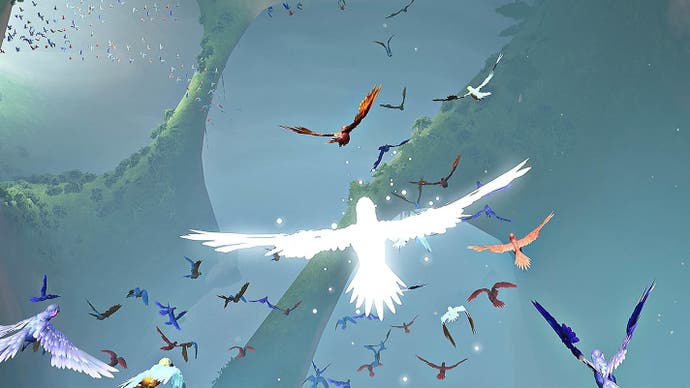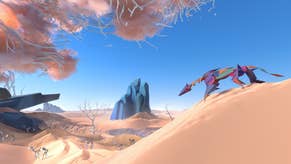Playing my way closer to nature
Underland, overland, wombling free.
Robert Macfarlane does not write about video games. Not despite, but because of this, I didn't truly understand why Eric Chahi's puzzley exploration of nature, Paper Beast, initially launched as a VR exclusive until I read Macfarlane's book Underland: A Deep Time Journey. In order to explain how and why this happened, I'll need to begin by introducing you to this man and his truly remarkable, unforgettable work.
Not satisfied with being a fellow in English at Emmanuel College, Macfarlane is also an author, scriptwriter, and - in the true sense of the word - adventurer. His books are primarily concerned with the planet on which we live, and the complicated relationship that we have with it. Underland, as the title suggests, zeroes in on the world below ground that the majority of us will never see; although after reading this book, I feel as though I'm one of the lucky few who gets to experience it a little at least.
Underland is a remarkable thing. Macfarlane's writing has a luxurious texture which melts in the imagination, and coats the mind's eye with vivid imagery. This man has sat me at the bank of a river deep underground; he has held my hand as we navigated alien dunes of jet-black sand hundreds of feet below the human world; we have panicked together as we squeeze through tiny Underland gaps that were never meant to admit a human body; he has given me tours of man-made structures far below sea level designed to contain the most lethal side-effects of our species.
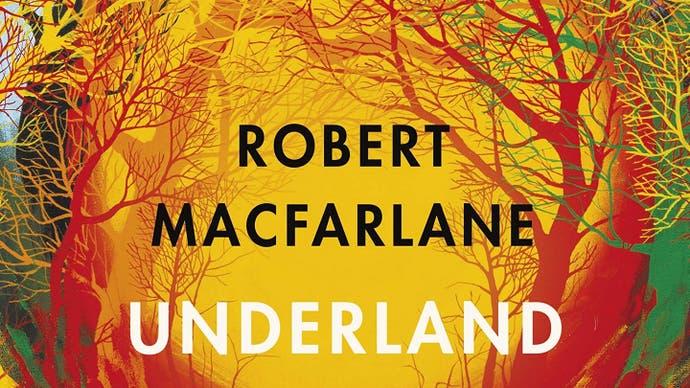
It is, above all, a book about how we shape the world physically, and how the world moulds us back mentally and spiritually. Although I was thrown into this incredible experience in a way that no book has managed for many years, something at the back of my mind was clearly taking notes all the while. Halfway through one of thousands of Underland paragraphs, Paper Beast leapt into the fray.
There are very few games that attempt to say something about the physical world of today, and fewer still that do so successfully. I played the exploration and adventure game Paper Beast in PSVR, and the deeper I delved, the more obvious it became that this was something truly special. Here was a game with a strong and important message. A message that it was keen for you to write yourself.
It is only from a distance that I can see, and be in awe of, just how many levels the game subtly discusses humanity's effects on the planet and on the other species with which we share it. There are sections of Paper Beast that bring the player through caves, with wondrous sights to see, but these are just small pieces of the overall puzzle that could have easily been designed as an Underland companion piece. I'm reluctant to go into detail, because if you haven't yet played this game for yourself, I urge you to do so. Let's stay a while in the game's sandbox mode, though.
Away from the main campaign, what may at first appear to be an afterthought - throwaway filler dropped in as an extra - is in fact the centre of Paper Beast's mesmerising universe. It's an area where you can place creatures, plants, and weather effects unlocked by meeting certain requirements within the main story. It's a microcosm of that tale. At first, there is nothing. Then you come along, and make... something. The world and its inhabitants bend and sway according to your whim. The ground warps. Creatures kill or are killed. Winds roar angrily and then die away. Nothing lives or dies, nothing happens, unless you put events into motion. It may sound like a god simulator, but it is the precise opposite. It is a humanity simulator.
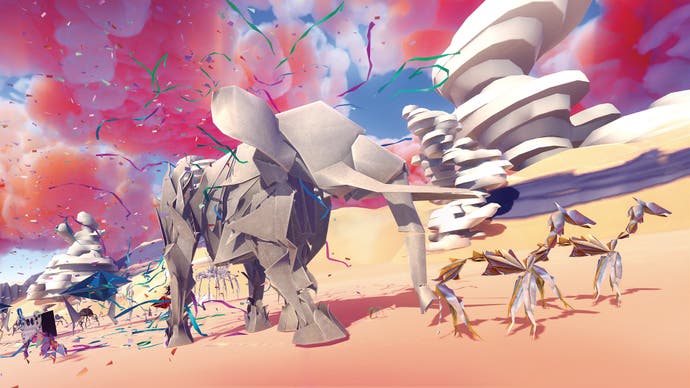
This, I realised, is why the original vision for Paper Beast was as a VR game. If you don't have a VR headset, then do please buy the 'Folded Edition' if you can afford it. I imagine most of the majesty will translate. But this was always meant to be a game where you could literally reach out into the world and affect it directly. Where you could dig a pathway where there was no path before. Where you could grab an innocent creature, torturing it in an unnaturally weightless state, simply because it was convenient for you to do so. Because this was what needed to happen in order to progress, and to hell with the consequences.
By the time I reluctantly turned Underland's final page, one more game had sprung to mind. Lost Ember, another game in love with the natural world, with its central mechanic of being able to jump into the body of any creature the player comes across, captures the spirit of exploration and even of being one with nature. I can't help but think that possessing a wombat, and using its furry little body to travel through its otherwise impassable burrow, would bring a smile to Macfarlane's face.
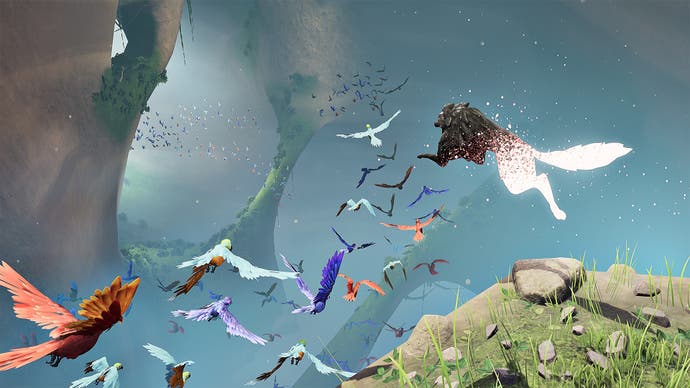
There are spaces hidden from view to explore in Lost Ember, but the player will also race across open fields as a wolf, skitter across mountains as a goat, and soar through the air as a bird. Swimming through rivers as a fish, while not directly commenting on our symbiotic (or, arguably, parasitic) relationship with the world, is a perfect fit for an interactive Underland experience. Although he never explicitly says so (in this book, at least), Macfarlane clearly has a childlike wonder when it comes to water. I don't think a chapter goes by without mention of his urge to swim in a river or lake that he comes across, or a reminiscence of a previous dive, or simply a description of the magical sights and sounds of naturally occurring water.
Underland is an utterly essential example of the power of the written word to bring us closer to nature. Macfarlane spent six and a half years writing, researching, and living it - and it shows. Paper Beast and Lost Ember represent two remarkable and important stepping stones on the road to video games achieving something similar. I'm very excited to see where the industry takes us on this journey in the future.
